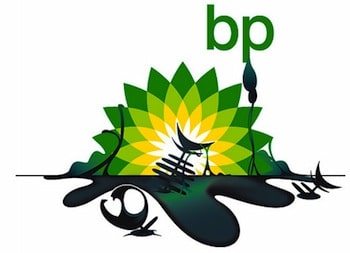Oil giant BP is urging the federal government to stop making payments to Gulf Coast residents affected by last year’s Gulf of Mexico oil geyser. BP claims that the improving economic conditions among areas hit the hardest by the oil provide enough evidence to show that they no longer need to be compensated for future losses from the environmental disaster.
To date, roughly $4.5 billion worth of claims have been paid out of the $20 billion fund established by the government and funded by BP to pay victims of the oil catastrophe. Claims continue to be filed with the government seeking compensation for their losses.
BP is not attempting to halt payments to current claimants with recognizable losses – only those who are claiming that their future income will be impacted. The company released a letter to the government and to the press claiming the following:
BP remains committed to paying all legitimate claims under OPA. Based on the current state of the Gulf economy, however, a reevaluation of the future factor is required. Multiple lines of evidence demonstrate that, to the extent that portions of the Gulf economy were impacted by the spill, recovery had occurred by the end of 2010, and that positive economic performance continues into 2011, with 2011 economic metrics exceeding pre-spill performance. That the Gulf economy is strong, and that there is no basis to assume that claimants, with very limited exceptions, will incur a future loss related to the oil spill, is evidenced by the following facts, among others:
During the first quarter of 2011, hotels in coastal areas of the Gulf states performed well above first quarter (pre-spill) 2010 levels.
Tourist businesses in the Gulf region reported strong, and in some cases, record, springs, Memorial Day weekends, and Fourth of July holidays.
According to the New Orleans Convention and Visitors Bureau, tourist dollars spent in the city in 2010 were at a record high and exceeded 2009 by more than $1.1 billion dollars.
To determine if BP’s claims of economic recovery are true, all you have to do is look to the past. The Exxon Valdez oil spill occurred more than 20 years ago, yet oil still coats areas of Alaska today. And the difference between the two oil leaks is that with Exxon, we knew exactly how much oil was spilled into Prince William Sound. In that case, it was roughly 11 million gallons of oil.
However, there is no precise measurement of how much oil poured into the Gulf of Mexico, but the best estimates say that it was as much as 184 million gallons of oil. It is highly unlikely that all of this oil disappeared or washed up on beaches. When this oil eventually turns up, claims will continue to be filed by those affected.
But it isn’t just the economy that BP is saying has recovered; they also make the claim that the fishing industry is back to pre-spill health:
All federal fishing grounds are open.
Upon the reopening of fishing grounds in the summer and fall of 2010, landings of shrimp and menhaden were very strong.
Landings of shrimp and menhaden have remained strong in 2011
As a Gulf Coast resident, I’ve seen modest crowds return to the beaches, and witnessed local businesses enjoying more tourist traffic over the last few weekends. It is summer beach season, after all, but those claims by BP are accurate, for the time being. This does not mean that residents and local businesses are completely out of the woods. Many will no doubt continue to incur future losses as a result of the BP offshore oil disaster.
But more importantly, for BP to claim that the seafood industry has not only rebounded, but that the seafood is safe to consume, is disengenous. Even more troublesome is the fact that this claim has been echoed by the federal government as well.
Reports show that commercial fishing and the recreational fishing industry are still suffering in the wake of the oil gusher. Additionally, studies on the safety of Gulf seafood have been dangerously inadequate. Most of the federal studies conducted have only tested for remnants of burnt oil and have not monitored other chemicals found in oil that pose a threat to human health. This is why, just a few days ago, universities across the South were given millions of dollars in federal grants to study the long term effects of the oil spill on marine life and on the safety of the seafood.
Until the long term studies are concluded, it is impossible for anyone to make a finite claim that seafood from the Gulf is safe. Given the well-documented trail of misinformation and confusion created by both BP and the government in the wake of the Gulf oil disaster, there is no reason to believe they’re telling the honest truth now. We must let science settle the safety of Gulf seafood, and only time will reveal the lasting impacts from this horrible oil disaster on Gulf residents and our economies.
To suggest that everything is completely back to normal is a dangerous and unfounded position. BP can – and certainly will – say what it wants to limit its financial obligations to clean up this disaster and make residents whole again. But the federal government – especially under the leadership of President Obama, who campaigned on the importance of relying on science instead of rhetoric – has no right to follow BP’s lead in confusing the public.
Subscribe to our newsletter
Stay up to date with DeSmog news and alerts






